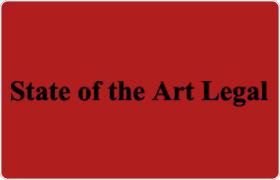Miami Beach Criminal Lawyer, Florida, page 4
Sponsored Law Firm
-
 x
x

Click For More Info:
-
State of the Art Legal
200 S.E. 1st Street Suite 505 Miami, FL 33131» view mapCriminal Defense Law Expert Legal Defense
If you're facing a difficult situation, you may benefit from having a lawyer from State of the Art Legal represent you. Call our office in Miami, FL, to set up your appointment.
800-826-0121
Ronald Joseph Manto
Federal Appellate Practice, White Collar Crime, Misdemeanor, Felony
Status: In Good Standing Licensed: 30 Years
FREE CONSULTATION
CONTACTRichard Benjamin Marx
Professional Responsibility, Ethics, Criminal, Administrative Law
Status: In Good Standing Licensed: 60 Years
Jorge Alberto Calil
Workers' Compensation, Criminal, Bad Faith Insurance, Accident & Injury
Status: In Good Standing Licensed: 21 Years
Pablo Andres Tamayo
Immigration, Criminal, Personal Injury, Car Accident
Status: In Good Standing Licensed: 17 Years
Lisa Victoria Lesperance
Traffic, Divorce, Criminal, Accident & Injury
Status: In Good Standing Licensed: 31 Years
FREE CONSULTATION
CONTACTDennis G Kainen
Criminal, Tax, International, Lawsuit & Dispute, US Courts
Status: In Good Standing Licensed: 43 Years
FREE CONSULTATION
CONTACTJeanne T. Melendez
Litigation, State Trial Practice, Federal Trial Practice, Criminal
Status: In Good Standing Licensed: 33 Years
 Joshua Alexander Miami, FL
Joshua Alexander Miami, FL Practice AreasExpertise
Practice AreasExpertise
